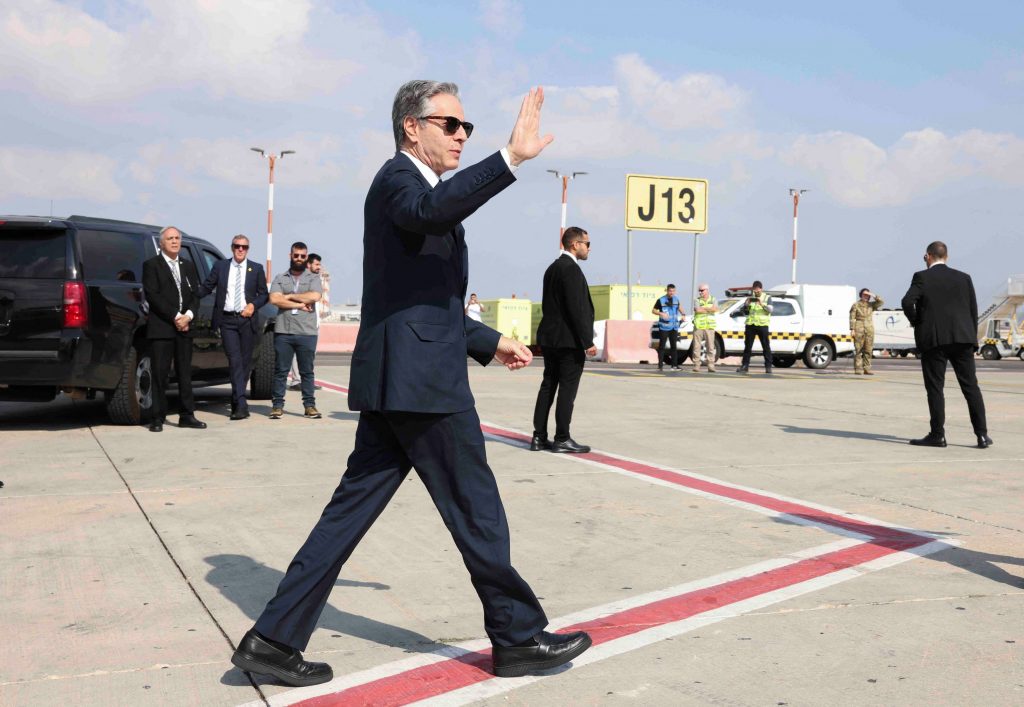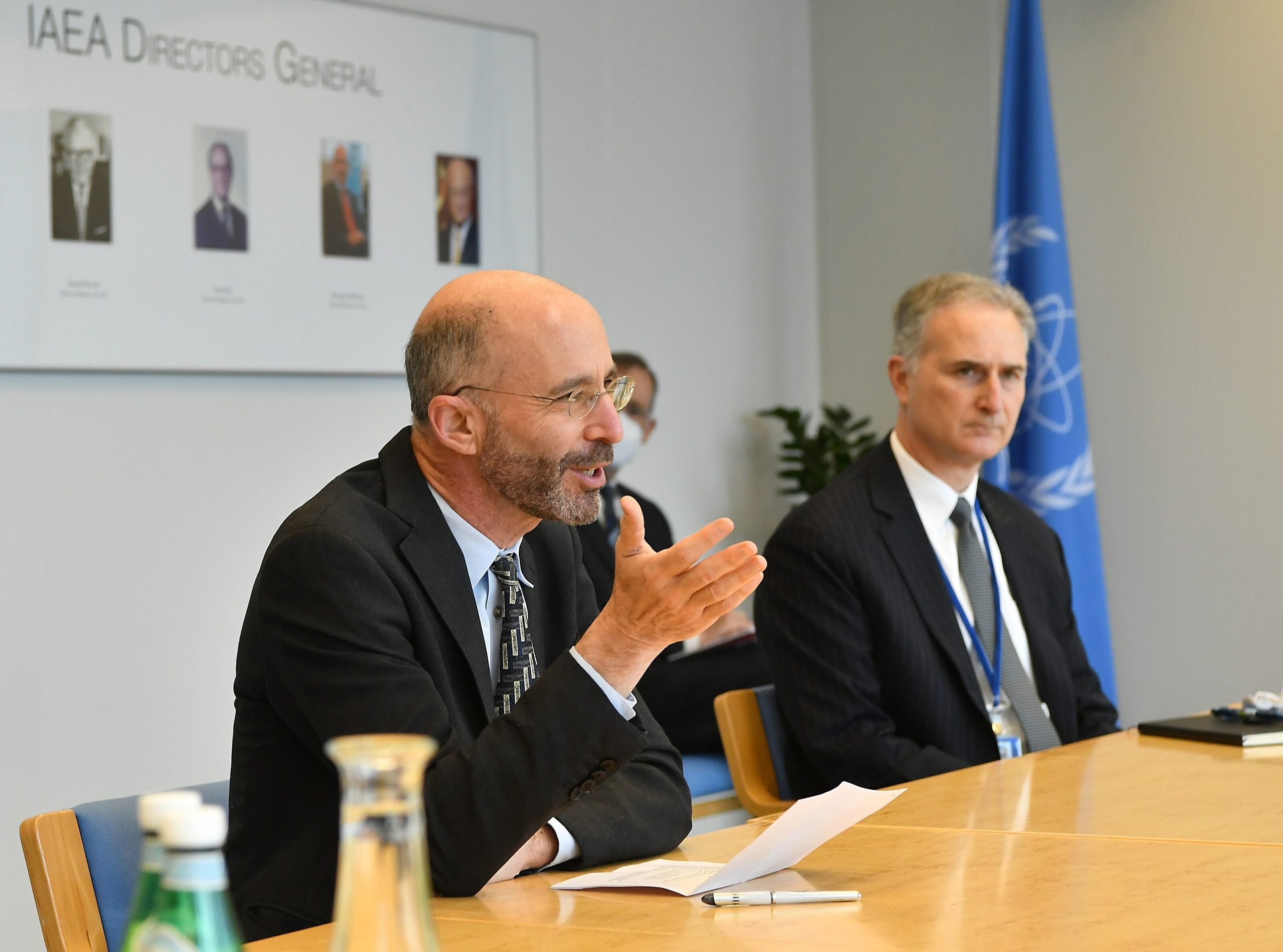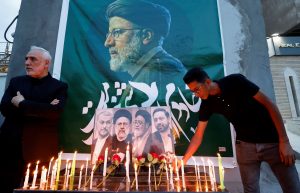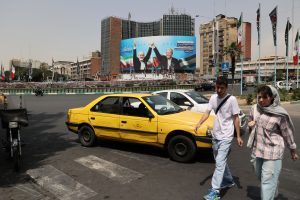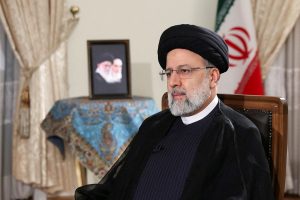Robert Malley arrived in Vienna determined to make a deal.
It was the spring of 2021, and the city was on a pandemic-era lockdown, with the Austrian government restricting outdoor activity to exercise and essential shopping. The closed Hapsburg-era Hotel Imperial reopened for Malley, the Biden administration’s Iran envoy, and his negotiating team.
They booked a suite and brought in conference tables and chairs from the U.S. Embassy.
Malley was seeking a negotiated return to a landmark 2015 agreement forged under President Barack Obama to prevent Iran from developing nuclear weapons.
President Donald Trump had left the deal, and resurrecting it as one piece of a comprehensive approach to the regional and security issues Iran posed was meant to be a crowning achievement of President Biden’s foreign-policy agenda.
Instead, Malley at times left his Western allies confused and was at odds with some of his key deputies. Within 16 months of starting , the talks were dead, and Malley ultimately found himself caught in a spiraling FBI investigation into whether he had improperly handled secret information, potentially moving classified materials to a personal email account.
The man who was supposed to lead efforts to contain Tehran’s regional and nuclear ambitions has been sidelined, his top-secret security clearance suspended, and placed on unpaid leave from government. The State Department continues to face questions over Malley, including from its inspector general, which in a report released this month said he might have been allowed access to sensitive materials even after his clearance was suspended.
Malley’s fall from official grace is part of the larger failure of the Biden administration’s efforts to contain Iran’s ambitions. Despite several years of efforts, Iran is two weeks away from producing enough fissile material for a nuclear weapon, Secretary of State Antony Blinken said in July.
A bald, bearded and wiry 61-year-old, Malley was marked early in his career as someone who looked at geopolitical issues in shades of gray rather than in black and white. The son of a leading Egyptian intellectual who dedicated himself to Arab causes, Malley had gone to school with Blinken in Paris and spent decades in and out of government going farther than any other prominent recent U.S. diplomat to engage adversaries and terror groups in the Middle East.
The investigation into Malley’s conduct led to a tense meeting between senior Federal Bureau of Investigation and State Department officials, according to people familiar with the conversations: The FBI viewed his work as sloppy, and the implications serious, while the State Department officials defended him.
A senior State Department official told the department’s inspector general that the allegations against Malley didn’t reflect serious misconduct.
A State Department spokeswoman declined to comment on the FBI meeting or other aspects of the probe into Malley’s conduct, but said that the department “would never look to direct the FBI on how to conduct any investigation.”
An FBI spokeswoman said that the FBI would neither confirm nor deny the existence of an investigation into Malley.
The diplomat and the journalist
Malley never quite escaped the shadow of his father, a mercurial journalist and publisher with passports from nine countries, the younger Malley said during a 2008 lecture at Oxford about him and their relationship.
Simon Malley had been close to Palestine Liberation Organization leader Yasser Arafat and was a caustic opponent of U.S. activities abroad. An Egyptian Jew who embraced Arab nationalism, Simon Malley had often denounced U.S. foreign policy “with relish and sometimes abandon,” Malley said in the lecture.
Robert Malley pursued a career in the Washington establishment: He landed a clerkship on the Supreme Court for then-Justice Byron White and later a job on the National Security Council in the Clinton administration. In government, he said in the Oxford lecture, “I discovered a world that bore little resemblance to the malevolent conspiracy-filled image to which my father still clung.”
Outside of government, Malley courted contacts that many people in Washington’s foreign-policy circles avoided. While working at the International Crisis Group, a Brussels-based think tank, he met with leaders of Hamas and Hezbollah—both U.S.-designated terrorist groups—in the name of conflict resolution.
During President Obama’s second term, the president zeroed in on making a deal to restrain Iran’s nuclear program, and Malley’s Iranian relationships suddenly became valuable. Malley helped broker the 2015 nuclear accord with Iran, signed with the European Union and several of its individual members, along with Russia and China, and known as the Joint Comprehensive Plan of Action.
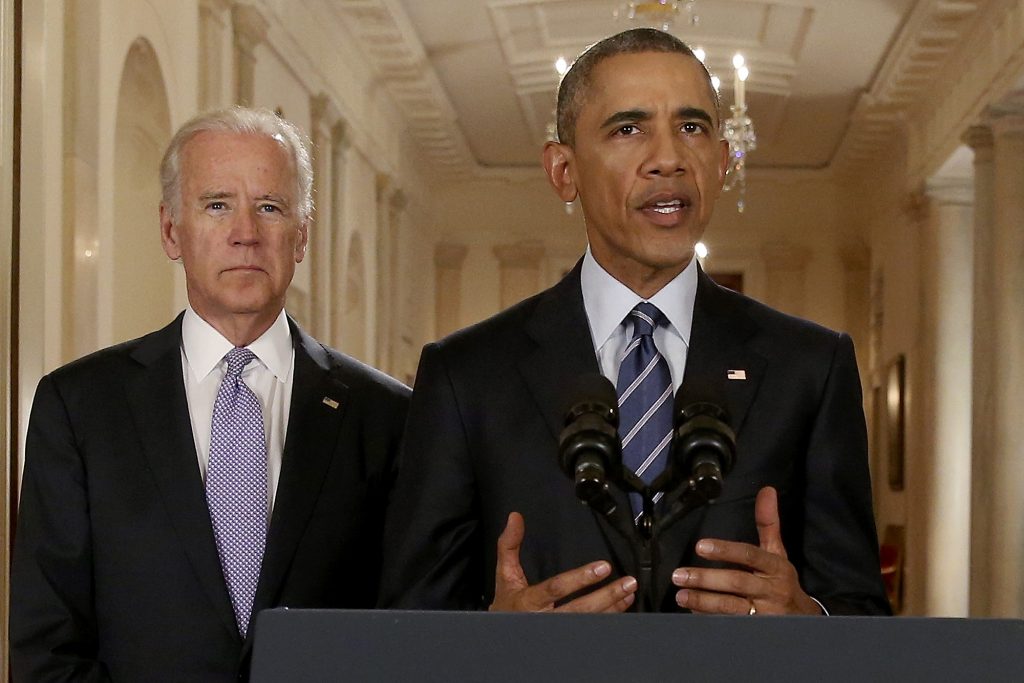
U.S. President Barack Obama speaks with Vice President Joe Biden at his side as he delivers a statement about the nuclear deal reached between Iran and six major world powers during an early morning address to the nation from the East Room of the White House in Washington, July 14, 2015. REUTERS/Andrew Harnik/Pool
It wouldn’t last long. In 2018, President Trump pulled the U.S. out of the agreement, characterizing it as dangerous and naive.
After Biden won the 2020 election, Blinken phoned Malley, asking if he would be willing to give the deal another attempt.
With U.S. policy on Iran seesawing from diplomatic engagement to maximum economic pressure, Biden, Blinken and Malley began sketching out conditions for a return to the deal terms as negotiations opened with Iran in Vienna in April 2021.
A ‘difference of opinion’
In Austria, Malley was prepared to make the first move.
The U.S. wanted a return to conditions that would safeguard the centerpiece of the 2015 agreement, keeping Iran at least a year away from producing enough fissile material for a nuclear weapon. However, there were suspicions from the get-go that Iran had already crossed this threshold and that it was unable—or unwilling—to turn back.
In response to renewed U.S. sanctions and other actions, Iran had declared in January 2020 that it was no longer bound by the conditions of the nuclear agreement. It had since expanded its stockpile of nuclear fuel.
Angry at the U.S. for having left the nuclear deal, Iran officials refused to negotiate with their American counterparts directly. Instead, European and Chinese diplomats were enlisted to ferry messages between U.S. and Iranian negotiators.
Malley proposed removing the portion of the U.S. sanctions that related to Iran’s nuclear program, attempting to mirror the conditions of the original nuclear agreement. Malley’s direct approach worried some members of his 10-person negotiating team, who believed he was showing his hand too soon.
“The basic criticism was about how much he unveiled,” said Enrique Mora , a Spanish negotiator who participated in the talks.
Some Western negotiators considered their Iranian counterparts cagey and opportunistic—ready to pounce on anything the U.S. suggested during the complex talks as though it were a formal offer—and believed they were using the negotiations to buy time to advance the nuclear program.
The Iranian mission to the United Nations didn’t respond to a request for comment.
U.S. officials had expected this portion of the talks to go more smoothly. As they dragged on, doubt set in.
Iran pocketed U.S. proposals and demanded more deal points, including the removal of Iran’s elite military force, the Islamic Revolutionary Guard Corps, from the U.S. foreign terrorist organization list.
Tensions within the U.S. negotiating team arose over competing impulses—making a deal quickly or pursuing a lasting agreement.
Talks broke off without a deal in June 2021, when Ebrahim Raisi , a hard-line cleric and judge, was elected as Iran’s president. When Tehran’s negotiators met with U.S. counterparts in late November 2021, Iran said it wanted to restart the negotiations from scratch.
Malley advocated for staying, believing that the price for persuading Tehran to return to talks later would prove too costly.
The U.S. stayed, a decision that fractured the U.S. negotiating team. Malley’s deputy, Richard Nephew, resigned, citing on X “a sincere difference of opinion concerning policy.” Another member of the group, Ariane Tabatabai, an Iranian-American State Department employee, also left.
“The U.S. showed that it was quite desperate to get a deal,” a European negotiator said. “The Iranians knew they could just string it out.”
The negotiations again stalled for several months but in what Western officials described as a last push, European negotiators presented Iran with a draft of a deal, which included sanctions relief for Iranian banks and a host of other entities and officials but excluded mention of the Revolutionary Guard. Iran rejected the agreement.
The investigation
Last spring, law-enforcement officials at the State Department received “adverse information” about Malley, meaning information about him that could affect his ability to hold a clearance, according to the inspector general report.
According to people familiar with the matter, Malley had clicked on a phishing link, which compromised a personal email account. While investigators examined the breach, they discovered evidence that Malley had potentially moved classified material, including meeting notes, to a personal account.
On April 22, law-enforcement officials hand-delivered Malley a letter notifying him that his clearance had been suspended.
When the Senate Foreign Relations Committee convened a closed-door meeting to discuss Iran last May, the Biden administration’s envoy to Iran was nowhere to be found. State Department officials told lawmakers that Malley was tending to a personal matter.
In an unexpected twist a few months later, the Tehran Times, an Iranian state media outlet, published a photograph of the two-page letter that Malley had received informing him that his clearance was suspended, without explaining how it had obtained the material.
A State Department spokeswoman declined to comment on the matter, citing a policy of confidentiality on individual security clearances.
The leaks continued, including fall 2023 simultaneous reports by Semafor, an American news outlet, and Iran International, a London-based opposition news organization. The reports, which included leaked emails, appeared to show that Ali Vaez , an Iran specialist at the International Crisis Group who had been advising Malley during the negotiations, had been part of the Iran Experts Initiative, a loose grouping of Western researchers and academics that Tehran had identified in 2014 to support its policy goals. Tabatabai, a member of the negotiating team, had also been part of the initiative.
Those emails, which were also viewed by The Wall Street Journal, led Malley’s critics to suggest that he was tainted by an Iranian influence campaign.
Richard Atwood, International Crisis Group’s executive vice president, has defended Vaez’s conduct, saying his involvement in the Iran Experts Initiative was just an extension of his work engaging all sides in diplomacy. “Ali’s work over that period and since is precisely the work he has done for over a decade at Crisis Group,” he said.
Malley is now teaching students at Princeton University and Yale University about U.S. foreign policy and human rights, though he remains on unpaid leave from the State Department, awaiting resolution of the FBI’s investigation.
While the Biden administration has never officially declared an end to efforts to revive the nuclear agreement with Iran, officials familiar with the process say it is effectively over, at least for now.
Write to Brett Forrest at brett.forrest@wsj.com
